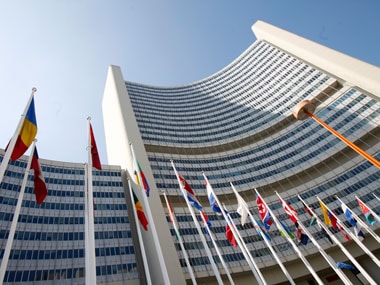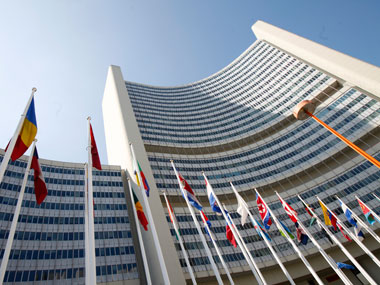It was in the aftermath of the immense misery and suffering that befell humanity during World War I that the League of Nations was formed, on 10 January, 1920, with the mandate of maintaining and preserving peace across the world. Its inefficacy — after some initial successes — was best underscored by Adolf Hitler when he said that “the lost land (of the Germans) will never be won back by solemn appeals to God, nor by hopes in any League of Nations, but only by the force of arms”, or when Italian dictator Benito Mussolini said: “The League is very well when sparrows shout, but no good at all when eagles fall out.” Predictably, the League couldn’t prevent the outbreak of the biggest war humanity has witnessed, which broke out in 1939. It was but a natural consequence that the League was disbanded in 1946. [caption id=“attachment_4559561” align=“alignleft” width=“380”] Representational image. Reuters[/caption] Coming back to the present, the reverberations of the police raids across India on 6 June and 28 August were bound to be felt for long. On these days, 10 rights activists and academicians were bundled into police vans under the Unlawful Activities Prevention Act (UAPA), spawning countrywide protests. The police accused the activists of ‘links’ with ‘unlawful organisations’ after their involvement in a public gathering to mark the 200th anniversary of the commemoration of the battle at Bhima Koregaon, an event that has come to symbolise Dalit empowerment. On Friday, a panel of UN human rights experts put out a statement, saying terrorism charges are a “pretext to silence human rights defenders” working with India’s poorest and most marginalised communities, including Dalits, and urged authorities to ensure their cases are promptly heard in line with international law. “We urge the government to refrain from engaging in the criminalisation of human rights defenders in general, including through the use of overly broad national security legislation,” the experts said, in specific reference to the UAPA. The stand of the UN human rights experts has raised pertinent questions, which comes after the first-ever report on Kashmir by the Office of the United Nations High Commissioner for Human Rights (OHCHR) issued on 14 June, 2018. The 49-page report accused the Indian security forces of large-scale violations in Kashmir. The UN experts’ view not-withstanding, the robustness of the Indian judiciary is well-known, as is its capability to deliver justice. The report on Kashmir, as the writers themselves admitted, was not based on ground level reports but on ‘secondary’ sources. An existential crisis seems to be dogging the United Nations in its 73rd year of existence. The inevitable question being asked at the global level: Is the world body still relevant? In what can perhaps be construed as a Freudian slip, this year’s UN General Assembly session is aptly themed: “Making the United Nations relevant to all people: global leadership and shared responsibilities for peaceful, equitable and sustainable societies". The world body’s recent series of failures have come in Syria, Yemen and the inability to handle the Rohingya crisis, not to speak of the challenges posed by US president Donald Trump’s blatant negation of multilateralism. To be fair, the UN has demonstrated its relevance many a time in the past in preventing military crisis, warding off hunger and famine, fighting for the rights of the underprivileged and also stationing boots on the ground in conflict zones. Yet like all organisations, perhaps the time has come to ask the inevitable: How relevant is the UN, now that eagles are falling out?
Representational image. Reuters[/caption] Coming back to the present, the reverberations of the police raids across India on 6 June and 28 August were bound to be felt for long. On these days, 10 rights activists and academicians were bundled into police vans under the Unlawful Activities Prevention Act (UAPA), spawning countrywide protests. The police accused the activists of ‘links’ with ‘unlawful organisations’ after their involvement in a public gathering to mark the 200th anniversary of the commemoration of the battle at Bhima Koregaon, an event that has come to symbolise Dalit empowerment. On Friday, a panel of UN human rights experts put out a statement, saying terrorism charges are a “pretext to silence human rights defenders” working with India’s poorest and most marginalised communities, including Dalits, and urged authorities to ensure their cases are promptly heard in line with international law. “We urge the government to refrain from engaging in the criminalisation of human rights defenders in general, including through the use of overly broad national security legislation,” the experts said, in specific reference to the UAPA. The stand of the UN human rights experts has raised pertinent questions, which comes after the first-ever report on Kashmir by the Office of the United Nations High Commissioner for Human Rights (OHCHR) issued on 14 June, 2018. The 49-page report accused the Indian security forces of large-scale violations in Kashmir. The UN experts’ view not-withstanding, the robustness of the Indian judiciary is well-known, as is its capability to deliver justice. The report on Kashmir, as the writers themselves admitted, was not based on ground level reports but on ‘secondary’ sources. An existential crisis seems to be dogging the United Nations in its 73rd year of existence. The inevitable question being asked at the global level: Is the world body still relevant? In what can perhaps be construed as a Freudian slip, this year’s UN General Assembly session is aptly themed: “Making the United Nations relevant to all people: global leadership and shared responsibilities for peaceful, equitable and sustainable societies". The world body’s recent series of failures have come in Syria, Yemen and the inability to handle the Rohingya crisis, not to speak of the challenges posed by US president Donald Trump’s blatant negation of multilateralism. To be fair, the UN has demonstrated its relevance many a time in the past in preventing military crisis, warding off hunger and famine, fighting for the rights of the underprivileged and also stationing boots on the ground in conflict zones. Yet like all organisations, perhaps the time has come to ask the inevitable: How relevant is the UN, now that eagles are falling out?
UN experts express concern over Bhima Koregaon raids: Is the United Nations even relevant today?
Sanjib Kr Baruah
• October 5, 2018, 22:29:54 IST
An existential crisis seems to be dogging the United Nations in its 73rd year of existence.
Advertisement
)
End of Article